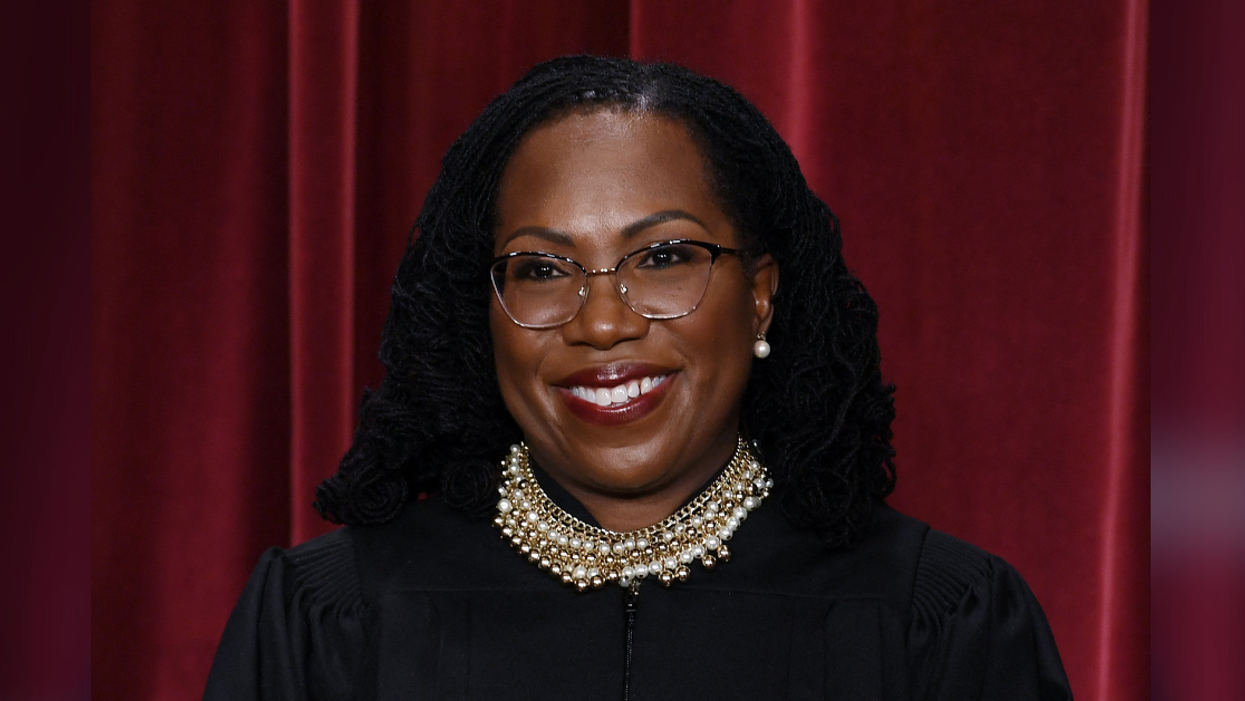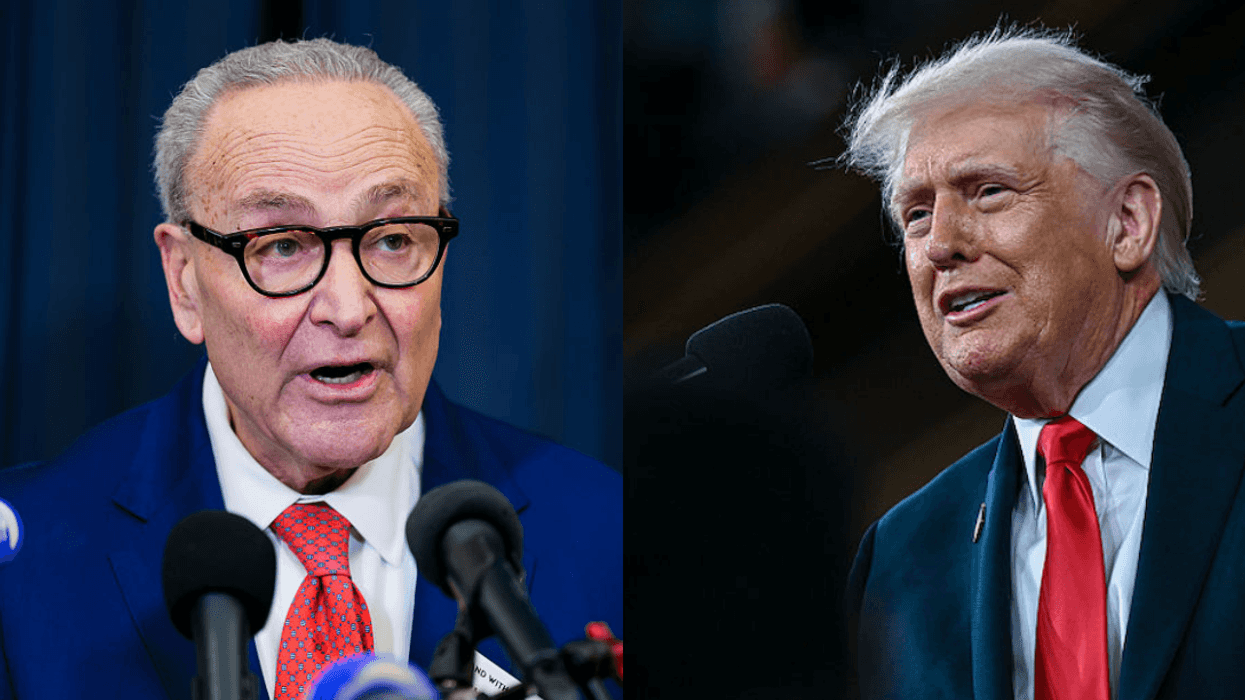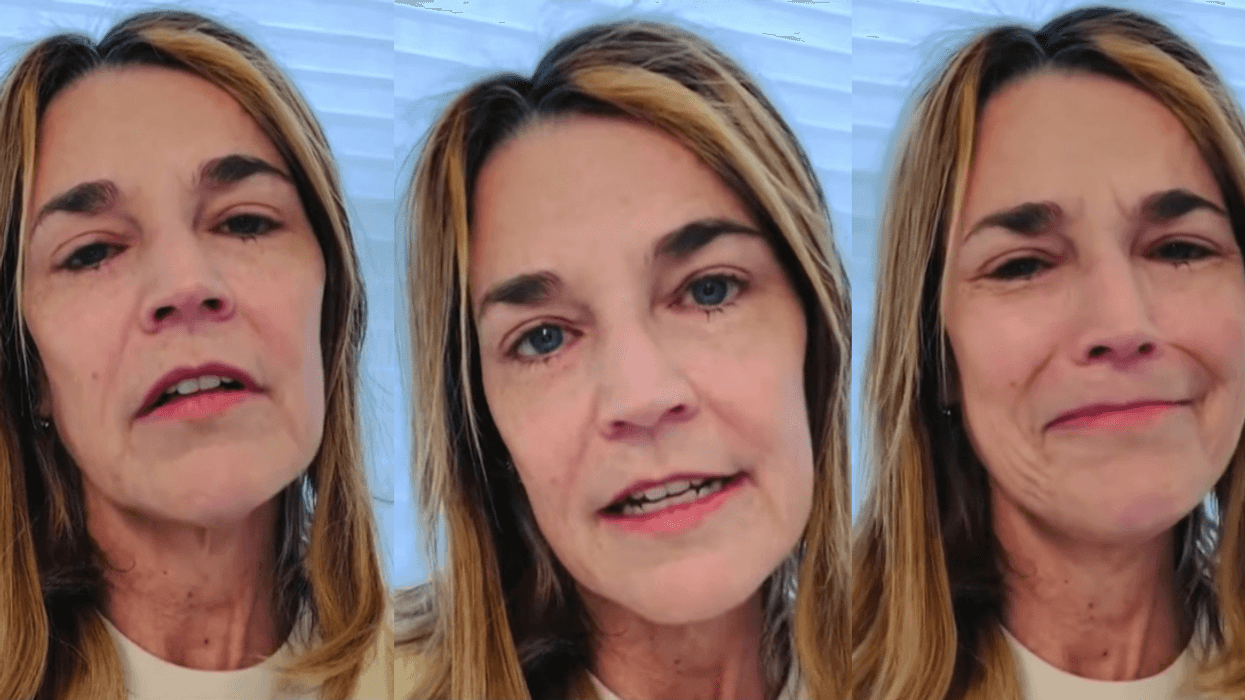In just her first week on the Supreme Court (SCOTUS), Justice Ketanji Brown Jackson hit the ground running.
The SCOTUS heard arguments in Merrill v. Milligan—an Alabama congressional redistricting case about packing Black voters into a single congressional district diluting their voting power.
This is a practice prohibited by Section 2 of the Voting Rights Act.
Justice Jackson used a conservative stance —Constitutional originalism— to prove the Reconstruction amendments focused on race. This contradicts a widely held conservative argument that the Constitution is race-neutral.
You can hear her remarks here:
Speaking to Alabama Solicitor General Edmund LaCour, Jackson reminded LaCour the 13th, 14th and 15th amendments are explicitly related to race.
She said:
"I don’t think we can assume that just because race is taken into account, that that necessarily creates an equal protection problem."
“I understood that we looked at the history and traditions of the constitution, at what the Framers and the Founders thought about. And when I drilled down to that level of analysis, it became clear to me that the framers themselves adopted the equal protection clause, the 14th Amendment, the 15th Amendment, in a race-conscious way.”
She explained:
"That we were, in fact, trying to ensure that people who had been discriminated against, the Freedman, during the Reconstruction period, were actually brought equal to everyone else in society.”
"[The 14th Amendment was adopted] to ensure that people who had been discriminated against, the freedmen, during the Reconstruction period, were actually brought equal to everyone else in society.”
Jackson continued:
"I looked at the report that was submitted by the Joint Committee on Reconstruction, which drafted the 14th Amendment, and that report says that the entire point of the amendment was to secure rights of the freed former slaves.”
Quoting an 1866 speech by Pennsylvania Republican Representative Thaddeus Stevens— a strong proponent of civil rights for Black people—she added:
"That report says that the entire point of the amendment was to secure rights of the freed former slaves."
"The legislator who introduced that amendment said that ‘unless the Constitution should restrain them, those states will all, I fear, keep up this discrimination and crush to death the hated Freedman'."
Jackson stated:
“That’s not a race-neutral or race-blind idea, in terms of the remedy."
Jackson noted one purpose of the 14th Amendment was to provide a constitutional foundation to the Civil Rights Act of 1866 which:
“specifically stated that citizens would have the same civil rights as enjoyed by White citizens. That’s the point of that act, to ensure that the other citizens, the Black citizens, would have the same as the White citizens.”
Justice Jackson then told LaCour:
“With that background, I’m trying to understand your position [on] Section 2, which by its plain text is doing that same thing."
"It’s saying: You need to identify people in this community who have less opportunity and less ability to participate and ensure that that’s remedied. It’s a race-conscious effort, as you have indicated."
"I’m trying to understand why that violates the 14th amendment given the history and background of the 14th Amendment.”
People applauded Justice Jackson’s efforts in a court they felt no longer confident in.
While Justice Jackson’s presence was welcomed, many felt reformation was needed for a court packed by former Senate Majority Leader Mitch McConnell to put the Bible ahead of the Constitution in SCOTUS.
People are still calling for four more justices to be added to reflect the current 13 circuit courts.
SCOTUS currently has nine justices because there were nine circuit courts the last time the number of SCOTUS justices was addressed.
Article III, Section 1 of the Constitution gives Congress the authority to change the size of the Supreme Court.
Congress used that authority seven times before.
















 @FlavorFlav/X
@FlavorFlav/X @flavorflavofficial/Instagram
@flavorflavofficial/Instagram @flavorflavofficial/Instagram
@flavorflavofficial/Instagram